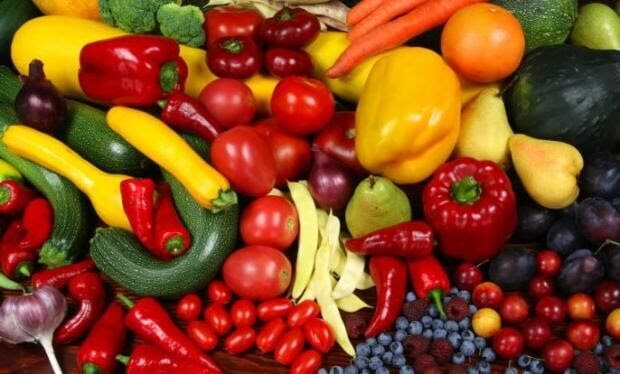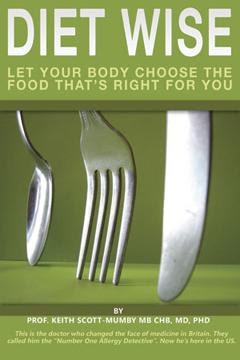Where have these people been living, the last 30 years? Apparently a group of doctors just woke up to what they think is the first proof of the value of dietary flavonols for brain and heart health. And I quote: “For the first time, dietary flavonols, which are components of many fruits, vegetables, and tea, have been linked to a significantly lower risk of developing Alzheimer disease (AD).”
However, don’t get carried away with excitement—some “experts” are calling for healthy skepticism when interpreting the findings.
Investigators at Rush University Medical Center in Chicago, Illinois, found that for those who reported diets highest in these flavonols, the rate of incident AD was 48% lower than that of their counterparts who consumed the lowest levels of these dietary compounds.
They went a little deeper into the story and came up with 3 particular flavonols: kaempferol, isorhamnetin, and myricetin. Apart from myrecetin, I’ve never heard of these. Kale, beans, spinach, apples, olive oil, and tomato sauce are among the sources richest of these flavonols. Red wine and tea are good sources too.
But isn’t this a bit of throwback mentality? Kale, beans, spinach and olive oil, etc. can’t possibly do any good, can they? So what was the “real” reason, what is the actual chemical that did it? (keep going, I’m being ironic!) This is why they hunt for the so-called “active ingredient”. There is NO active ingredient in healthy fruits, oils, and veg. The whole plant does the job.
Eat your fruits and vegetables, particularly dark leafy greens, and drink some tea every now and again. A healthy diet that contains various fruits and vegetables is critical for continued health, especially brain health, is the main message being drawn from this useful study, which was published online January 29, 2020, in the journal Neurology.
At least the dodos have woken up, even if they are deluded that they just discovered the benefits of flavonols. The rest of us have known for several decades!
Ha ha!
We have also known that polyphenols, and particularly flavonoids (sometimes called vitamin P), are good for brain health. That’s why non-dutched organic chocolate is so good for us. For example, the famous longitudinal Nurses’ Health Study* investigators reported higher global cognitive scores among women with higher flavonoid consumption in comparison with others after 6 years of follow-up.
In addition, work in animals has linked higher flavonol intake to a lower risk of developing dementia.
However, to date, no researchers have explored the potential cognitive benefits of the flavonol subclass in humans.
To fill this research gap, investigators studied 921 participants living in the Chicago area, with a mean age was 81 years, and they were all free from dementia at baseline. The majority (75%) were women.
After adjusting for age, sex, education, APOE-?4 positivity (that’s a gene that disposes to AD), late-life cognitive activity, and physical activity, the results showed that those in the highest quintile of total flavonol intake had a 48% lower risk for incident AD vs individuals in the lowest quintile.
A “quintile” means a fifth part, in other words about 20% of the whole. It does not mean the top group consumed 5 times as much flavonols as the lowest group.
This is a pretty staggering connection. You don’t have to be a vegetarian; just replace some of the meat, fowl and fish with brightly colored fruits and vegetables!
Skeptics
Of course the skeptics are all over this. They consider it their duty to pick holes in EVERYTHING.
They point out (quite correctly) that an association does not mean a causative role. But c’mon you idiots. Does that mean we have to trash the whole idea?
Of course not. It means we have to proceed with the wisdom we have, while looking for more conclusive proofs. But since Big Pharma can’t make $billions on selling fruit and veg, a properly designed prospective or “longitudinal study” as it’s called (going forwards, to see what happens, not backwards into what has happened) is never likely to be done.
Commenting on the study, Gunter Kuhnle, professor of nutrition and food science, University of Reading, United Kingdom, in a release stated, “The mode of action of flavonols is not known and it is likely that the observed associations are simply due to a dietary pattern rich in specific foods and vegetables.”
In truth, the investigators ran a series of adjustments to rule out other potential contributors to their findings. For example, they found that intake of vitamin E, saturated fat, folate, leutin, and omega-3 fatty acids did not materially change AD risk estimates.
“A risk reduction of almost 50% is of course impressive,” Kuhnle added. “But there are currently no data that suggest that flavonols as a compound could have such an effect.” Remember the old science maxim: It can’t be true, therefore it isn’t!
David Curtis, honorary professor of genetics, evolution, and environment at University College London, United Kingdom, said in a release. “…On the basis of this study I would not be urging people to drink more tea or eat more kale.”
Sounds like he already has dementia then…
Only One Piece of the Puzzle
The researchers found that assessing the role of diabetes, hypertension, myocardial infarction, and stroke did not markedly change the results. Similarly, the analysis showed that higher body mass index and depression did not worsen AD risk.
The only statistically significant modification of effect was by sex. Total flavonol intake was stronger in men.
“In this community-based prospective study of older persons, we found evidence that higher flavonol intake through food sources, and kaempferol and isorhamnetin in particular, may be protective against the development of Alzheimer dementia. The associations were independent of many diet and lifestyle factors and cardiovascular-related conditions,” the investigators write.
Lead study investigator Thomas M. Holland, MD, of the Rush Institute for Healthy Aging, said the association of flavonols with decreased AD risk did not surprise him. “However, I was pleasantly surprised by the percent rate reduction being as strong as it was,” he said.
“It is generally known that the vitamins and minerals found in these food items are important. But we are now understanding that it’s the entire composition of the food, inclusive of bioactives, like flavonols, that render these foods as beneficial,” Holland added.
So has understood the truth: the WHOLE food is what does the job. Nutritional accountancy, as I call it, is worthless.
Assessing Foods That Are Just Right For YOU…
Get yourself a copy of my book Diet Wise.
May you never get dementia!
To Your Good Health,

Prof. Keith Scott-Mumby
The Official Alternative Doctor
1. Dietary flavonols and risk of Alzheimer dementia. Thomas M. Holland, Puja Agarwal, Yamin Wang, Sue E. Leurgans, David A. Bennett, Sarah L. Booth, Martha Clare Morris. Neurology Jan 2020,
The post The Dodos Are Alive and Now Studying Nutrition (Apparently) appeared first on Dr. Keith Scott-Mumby.


